Politics
Arts Nonprofit Accuses Clear Channel of Censoring Billboards With Art Critical Of Texas Prisons
Clear Channel Outdoor, the largest operator of outdoor billboards and signs, has long faced accusations of what its critics call censorship.
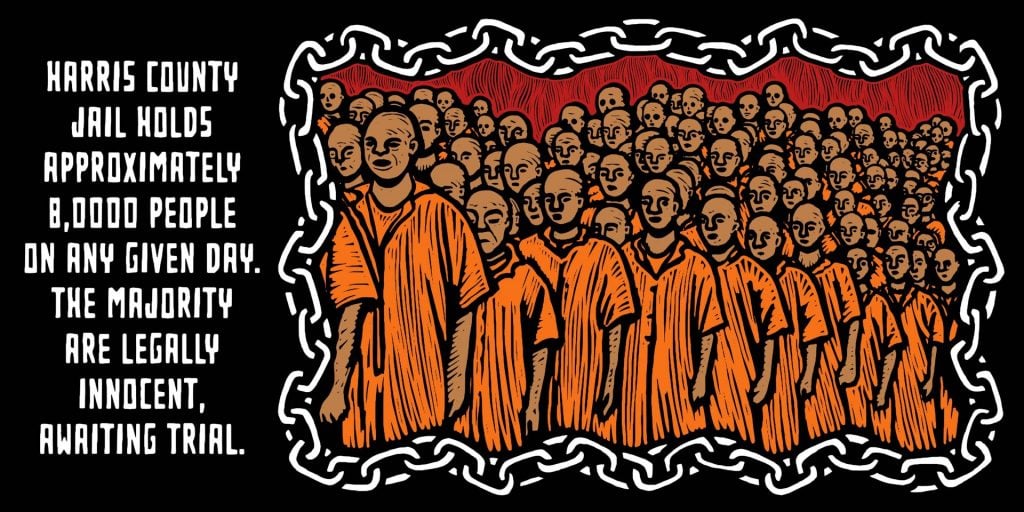
Clear Channel Outdoor, the largest operator of outdoor billboards and signs, has long faced accusations of what its critics call censorship.

Adam Schrader

Two nonprofits that planned a public art exhibit in Houston, Texas, claim the project has effectively been censored by Clear Channel Outdoor, an advertising company that owns billboards that were set to be used to display the work.
Art At a Time Like This released a statement decrying what it described as the censorship of “8×5 Houston,” an exhibit created with fellow nonprofit SaveArtSpace that is critical of the Texas prison system.
“The communities’ lives have been so impacted by the incarceration system and the Texas justice system,” ATLT co-founder Barbara Pollack said by phone. “There is an atmosphere of censorship in Texas right [now] and the people are dying in Houston in the jail in the middle of the city.”
The “8×5” series of exhibits nationwide first launched in Miami in June 2022 and is named for the size of an average prison cell in the United States. The artists whose works were chosen for the Houston edition include Chandrika Metivier, Faylita Hicks, Jared Owens, Jenny Polak with The Fortune Society Artists, Kill Joy, Mel Chin, Monti Hill, McKenna Gessner, Rebo, and Trenton Doyle Hancock.
Clear Channel Outdoor—which owns over 500,000 billboards nationally—spent weeks in negotiations with the arts nonprofits. It had requested the billboards include the sentence “Paid for by Art At A Time Like This & Save Art Space” at the bottom of each billboard before final designs were submitted and approved—a stipulation the nonprofits agreed to.
But then, a day before the billboards were supposed to go up (November 4), Clear Channel Outdoor told ATLT that they were pulling the plug on the agreement. No reason was provided.
Pollack and Anne Verhallen, her fellow cofounder, issued a statement after their billboard contract was cancelled saying they were “deeply disturbed” by the “politically active” company’s decision “to silence the free expression of our artists and collaborators.”
The arts groups have now found a new home to continue the exhibit.
Nine of the ten works will be displayed on banners on a fence around the Houston Museum African American Culture while one of the works, by the artist Mel Chin, will be pasted on the side of a building near the Menil Collection in Houston. The banners will be up for two weeks beginning November 20.
“We put down money, so it’s going to happen,” Pollack said. “Obviously, we just didn’t have the budget to re-paste all of them, so the fence around HMAAC is just perfect.”
Pollack said that Chin’s work was chosen to be the one repasted because he’s “from Houston and people in Houston really love him.”
Clear Channel Outdoor was once owned by Clear Channel Communications, the massive radio station operator that rebranded to iHeartMedia in 2014. Before the rebrand, talks of whether or not Clear Channel had a monopoly on radio stations and billboards were well under way, after the company removed antiwar billboards in Times Square in 2004. Clear Channel Outdoor became a subsidiary of iHeartMedia for its outdoor advertising business and was later spun off from iHeartMedia in 2018.
But Clear Channel Outdoor, the largest operator of outdoor billboards and signs, has continued to face accusations of censorship for its varying attitude towards messages from different sides of the political spectrum. Clear Channel Outdoor had an initial public offering in 2019.
In 2011, Clear Channel removed three billboards that had said, “Equal rights for Palestinians—Stop funding the Israeli military.” The company was pressured into removing a billboard stating “Voter fraud is a felony! 3 ½ Yrs & $10,000 Fine,” in the swing states of Ohio and Wisconsin during the 2012 election year and later removed a billboard for a judicial candidate in California in 2014.
In 2019, Clear Channel relented to public outcry after initially approving a series of anti-abortion ads in the United Kingdom, and in 2020, the company pulled a billboard of an artist’s mural of George Floyd depicting what it called “violence.”
Amid other scandals faced by the company, the Securities and Exchange Commission announced that Clear Channel Outdoor in September agreed to pay more than $26 million to resolve charges that it bribed Chinese government officials to obtain outdoor advertising contracts in violation of the Foreign Corrupt Practices Act.
Artnet News has reached out to Clear Channel through a contact form on the company’s website but not received a reply as of press time.
“In terms of censorship, this felt the worst to us of any situation,” Pollack said. “We’ve been doing these projects for almost four years, which is all about creating a platform to let artists speak freely about social issues. So the company in a way violated our mission.”
“We really felt what is going on in Houston right now is a crisis that needs to be addressed and the delusion of billboard companies is that by silencing people the problem goes away,” she added. “That is not saving people there. People are going to continue to die.”
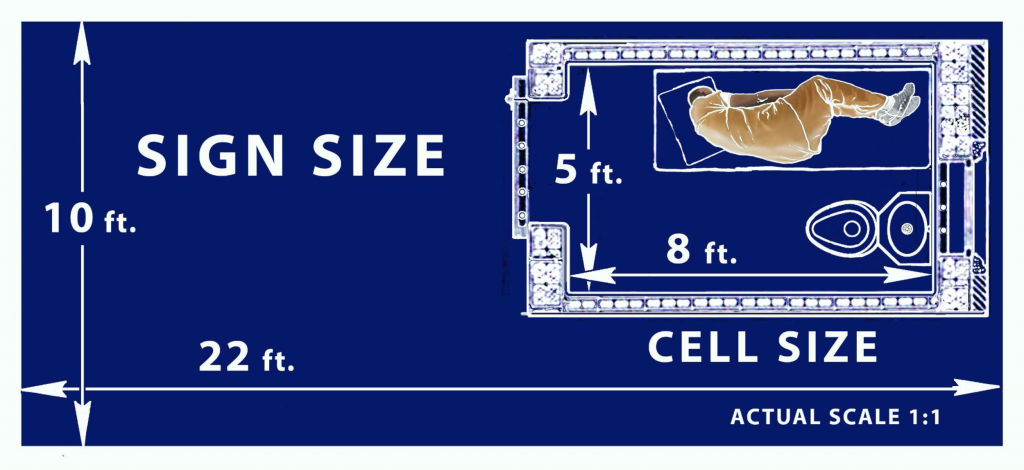
An artwork by the artist Mel Chin, a Houston native, will now be pasted on the side of a building near the Menil Collection. Photo courtesy of Art At A Time Like This
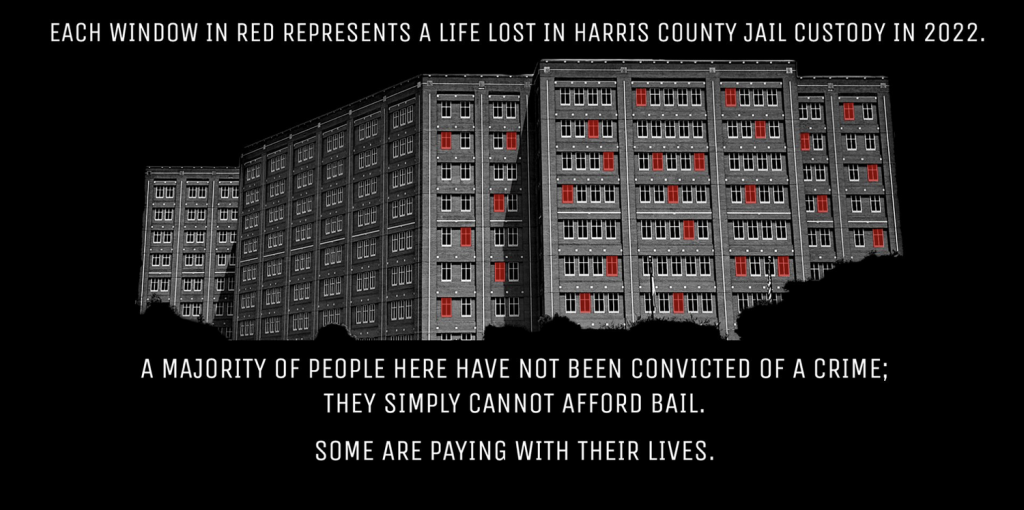
A work by McKenna Gessner is pictured, critical of the Texas justice system. Photo courtesy of Art At A Time Like This
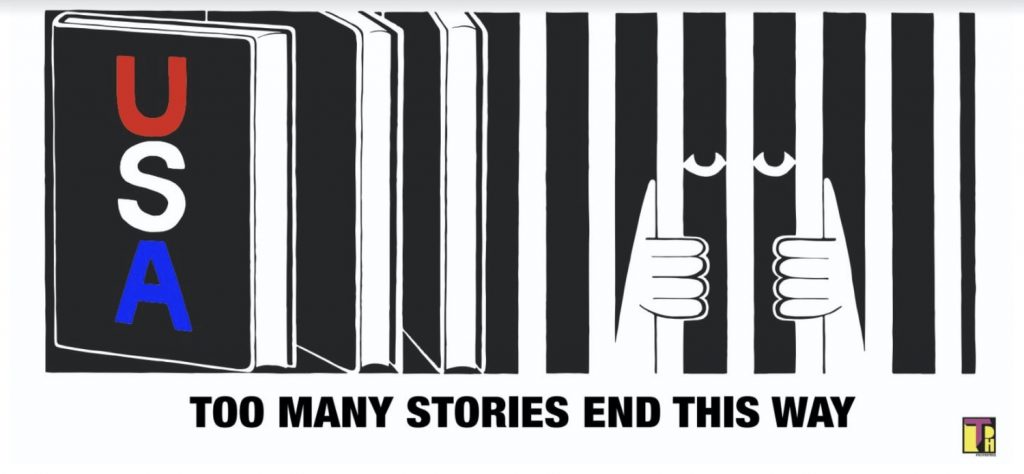
A work by Trenton Doyle Hancock is a part of the “8×5” exhibition. Photo courtesy of Art At A Time Like Thsi
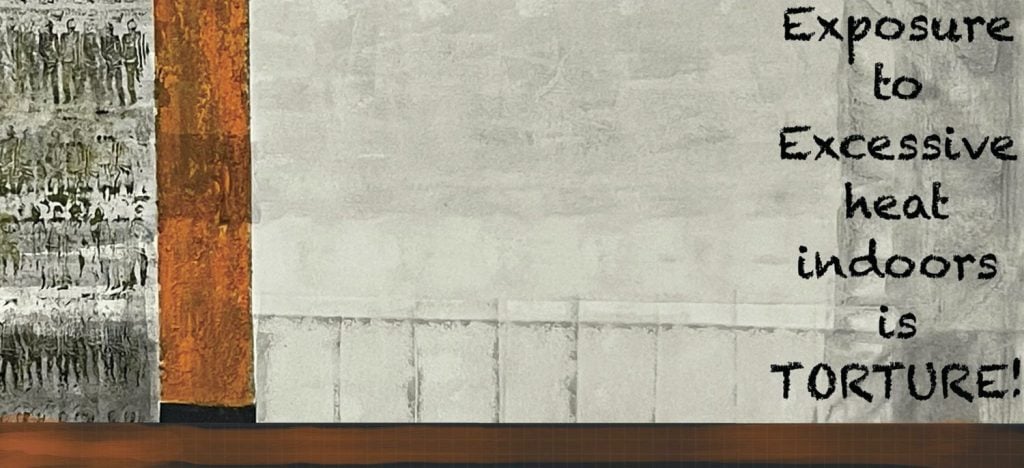
A design by Jared Owens states “Exposure to Excessive Heat Is Torture!!” Photo courtesy of Art At A Time Like This